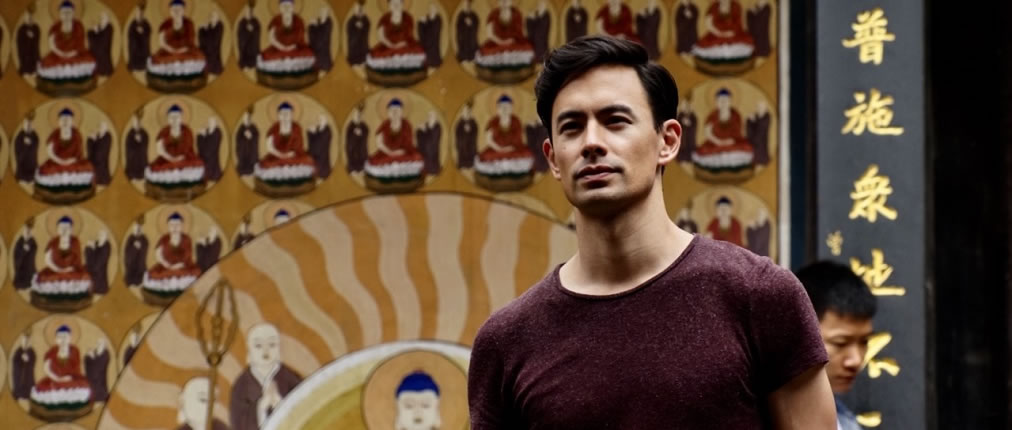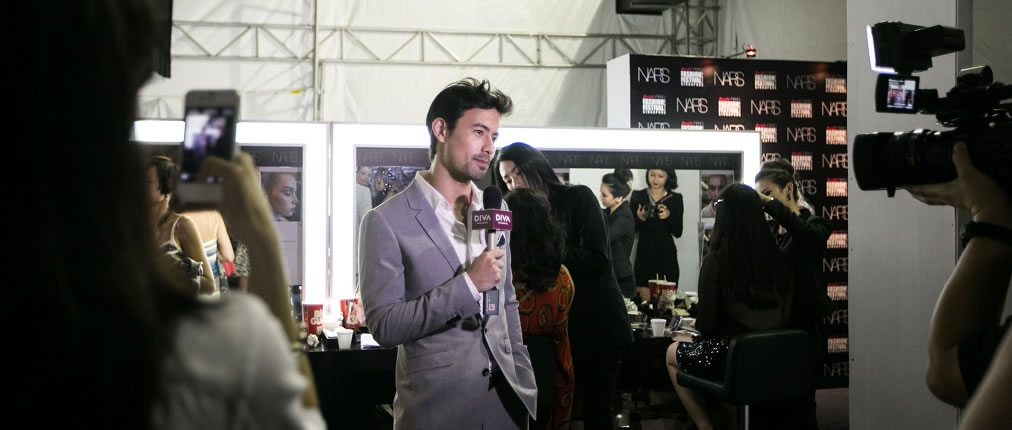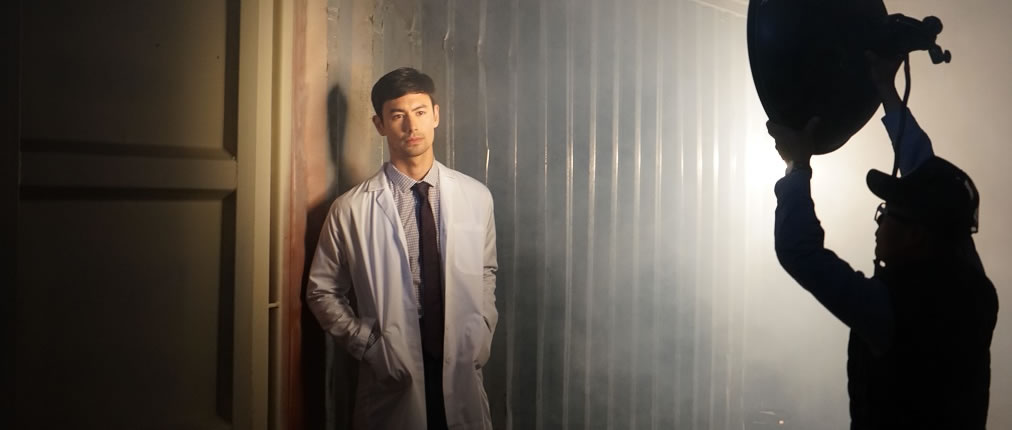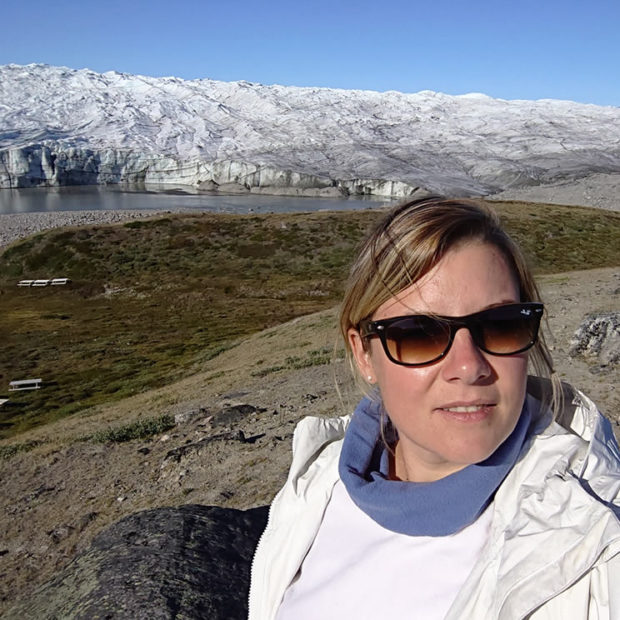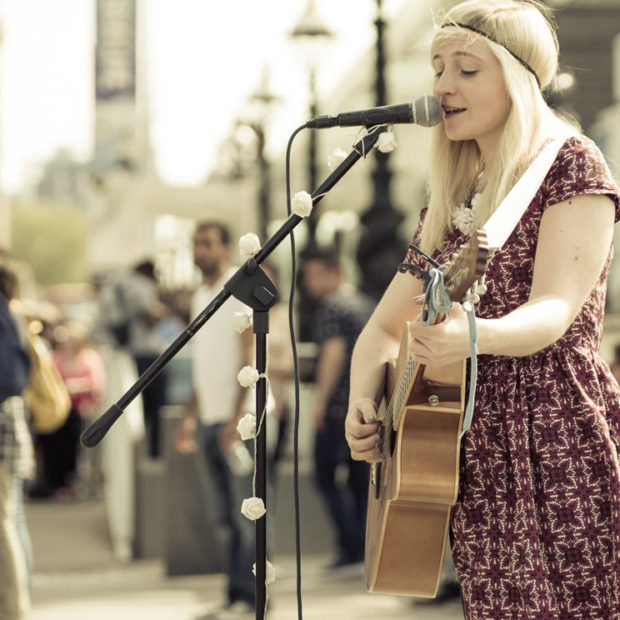Hartley News Online Your alumni and supporter magazine
George Young (BSc Psychology, 2002) is the definition of all-round entertainer, known internationally for his work on shows such as Containment and Million Dollar Money Drop. With a career traversing acting, presenting, and the occasional bit of singing and dancing, he has made a name for himself across a global stage.
Southampton Connects caught up with George to chat about his diverse line of work, succeeding in such a competitive industry, and his memories of the Students’ Union.
Tell us a bit about what you’re up to these days.
I’ve ended up on a couple of different continents since leaving Southampton – I’m currently in the film and TV industry in Singapore, Taiwan, and the US.
How did you get into the entertainment industry?
In a very roundabout way! After graduating from Southampton with a psychology degree (and sampling all that the Students’ Union, Jesters etc. had to offer), I did a law conversion course, went the whole nine yards, and trained and qualified as a lawyer in a London law firm.
Once I’d pleased my parents (they both come from strict cultures, which was reflected in their parenting), I decided to leave law altogether and go into the one thing I’d loved to do since I discovered that showing off could be a career: the entertainment industry.
What have been some of your favourite projects to work on?
It’s the variety that I love about the industry: I’ve acted (and sung and danced – badly) in Bollywood movie Jhootha Hi Sahi; been a game show host on the very first Asian version of the franchise Million Dollar Money Drop (the UK had a version called The Million Pound Drop hosted by Davina McCall); acted in a bunch of Mandarin language dramas at a time when I couldn’t speak a word of Mandarin; starred in US network television series Containment, which made its way to Netflix and took me to Comic-Con as a guest on a panel; met my future wife while travelling for a commercial; and years later filmed our Antarctica wedding for a Discovery Channel show.
I couldn’t have foreseen the majority of that all when I first embarked on this career, but I’m very happy with the highlights so far!
You’ve had a truly international career. How does your work vary from continent to continent?
I’ve noticed that in Asia, there’s less of a divide between an actor and presenter – I found I could host a travel documentary one month, and act in a horror mini-series the following month. In the West, there’s more of a divide – you have to choose your discipline.
Acting and presenting have their differences. In presenting, the camera is your best friend – you’re lavishing all your attention on the thing. In acting, you’re hoping the camera remains your best friend, despite ignoring it between the commands ‘action’ and ‘cut’. Thankfully, I’ve been fortunate enough to be able to hemisphere-hop to get both fixes.
What inspired you to study psychology at the University of Southampton?
I have three brothers, two of them with autism; I grew up with child psychologists working with my brothers, including some from the University. Studying psychology – in Southampton no less – to learn more about the condition was a natural fit for me.
What special memories do you have of your time there?
Surely everyone mentions their first-year halls and the Students’ Union? Well, no surprises here! My first year was one of the most fun periods of my life. I was staying in Hartley Grove (A Block), and most recently was having a coffee in LA with a friend who lived directly opposite my room there – a testament to the friends you make at uni, I suppose!
Come to think of it, three (including me) of the eight or so people who lived along my corridor in Hartley ended up in diverse careers: one is in the music industry as a manager for various artists and the other is a marine biologist who travels the world capturing the most interesting underwater life on camera.
And yes, the Students’ Union also brings back great memories, mostly because of the partying and being strategic in making friends with the fellow students who ran the bar.
In our senior year we also almost ran the Psychology Society to the ground with our completely inept management! Please tell me there’s still a Psychology Society! Apologies on behalf of our year if there isn’t. [There is.]
Did your degree influence the path you took?
At first glance, I suppose people wouldn’t think so, but it has led to me having a better understanding of autism and the process of working with people with additional needs like my brothers. I’ve taken that with me in terms of trying to raise awareness of the condition whenever I have the platform and the opportunity to do so.
In Singapore, I’ve worked with government agencies, charitable organisations, and brands to speak up about autism, and create a talking point for those who want to learn more about the condition and the families who care for those with the condition.
This past year, I wrote, directed, and performed in a short film on autism – I went to Cannes Film Festival with it as part of the Cannes Court Métrage, and it’s been doing the rounds in a number of festivals in the US.
What ambitions do you have for the future?
I’ve considered myself very fortunate to be able to work in this very fickle industry, where the majority of actors and performers just don’t get the opportunity for a sustainable career. My goal is to continue on this path and this ride for as long as I’m willing and able to!
What advice would you give to anyone who’d like to get into acting and entertainment?
This would all apply to most career paths you’re considering: you should ask yourself why you want to get into this industry and what your goal is. But perhaps most importantly of all, you should ask yourself if you’re going to be happy on the journey towards that goal.
You’re going to set yourself a bunch of goals and career achievements along the way – you may reach some sooner than you had hoped, and you might not reach others quite as soon as you’d like. It’s the journey to those goals that’s going to take up the most of your life, so you’d better enjoy the ride. That and a good headshot should set you off nicely.
